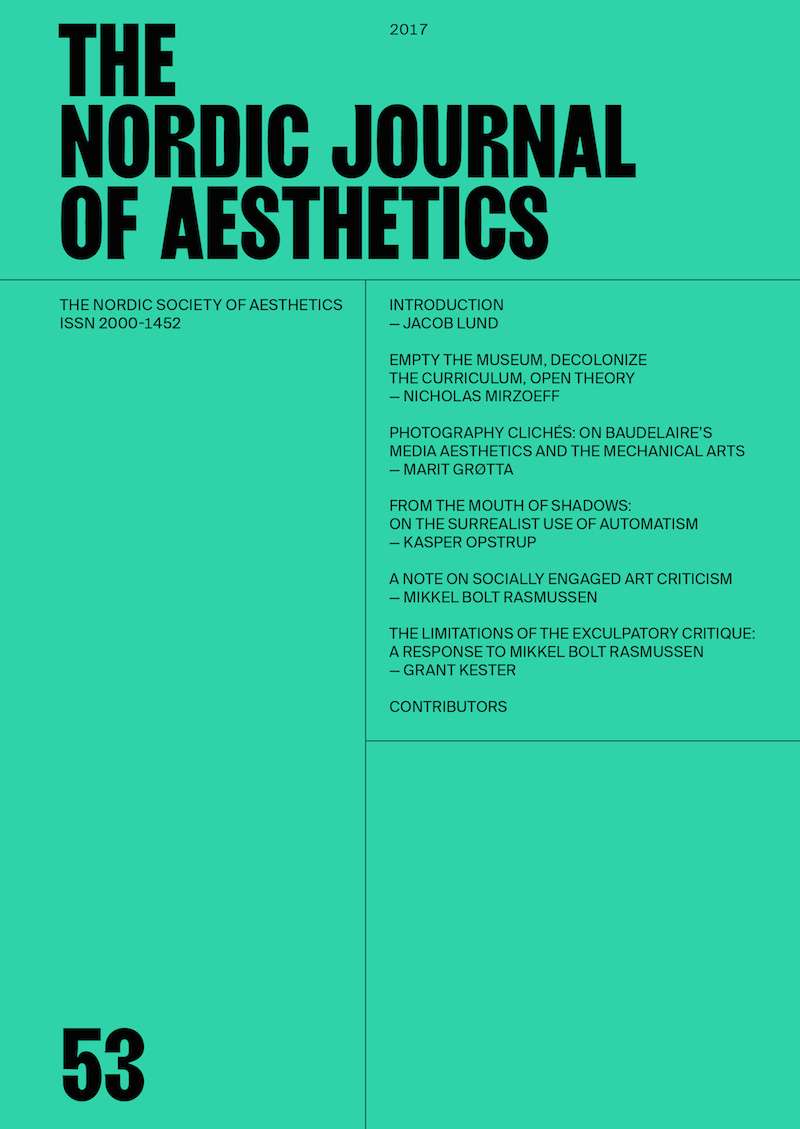FROM THE MOUTH OF SHADOWS: ON THE SURREALIST USE OF AUTOMATISM
DOI:
https://doi.org/10.7146/nja.v25i53.26405Keywords:
Surrealism, Automatism, Mystical utopianism, Spiritualism, Alchemy, Radical politics, The imagination, Myth, Hermeticism, Magical thinking, Occult revival, Religion of the futureAbstract
From surrealism’s beginnings around a Parisian séance table, it oscillated between the occult and the political. One of its key methods, automatism, provided access to both the esoteric and the exoteric: it took form in the mid-19th century as a spiritualist technique for communicating with the other side while, simultanously, this other side could address political issues as equal rights, de-colonisation and a utopian future with an authority coming from beyond the individual. By tracing the development of automatism, the article shows how automatism in surrealism became a call for both a re-orientation of life and an institutional re-organisation by becoming a divination tool for a future community looking back to hermeticism to find a way forward. The article argues that not only can surrealism fruitfully be understood in the light of an occult revival in reaction to crises but, additionally, that it marks the return of and a reaction to a kind of magical thinking in the modern – due to waning religious and socio-economic orthodoxies – that echoes eerily into our own big data contemporary of social medias where we tend to substitute equations with associations.
Downloads
Published
How to Cite
Issue
Section
License
Authors who publish with this journal agree to the following terms:
- Authors retain copyright and grant the journal right of first publication with the work simultaneously licensed under a Creative Commons Attribution License that allows others to share the work with an acknowledgement of the work's authorship and initial publication in this journal.
- Authors are able to enter into separate, additional contractual arrangements for the non-exclusive distribution of the journal's published version of the work (e.g., post it to an institutional repository or publish it in a book), with an acknowledgement of its initial publication in this journal.
- Authors are permitted and encouraged to post their work online (e.g., in institutional repositories or on their website) prior to and during the submission process, as it can lead to productive exchanges, as well as earlier and greater citation of published work (See The Effect of Open Access).




